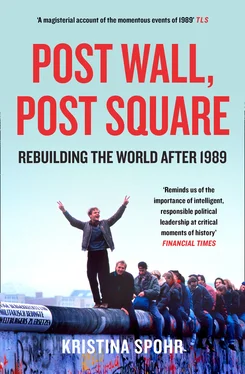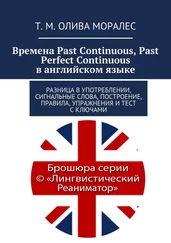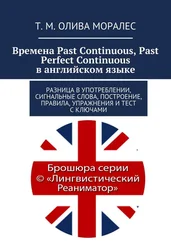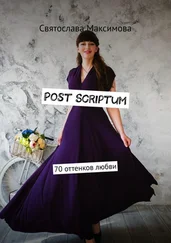For the first time Kohl’s plan started to clarify the relationship between the processes of German unification and European integration as being interwoven but separate. Neither should impede the other and they could take place at different speeds. German unification must be effected within the framework of the EC but the specific evolution and form of future inner German relations was up to the Germans to decide for themselves.
In sum, Kohl had proposed a blueprint for that new relationship between the two Germanies, and one clearly based on Bonn’s terms. Reflecting ‘the greater political self-assurance’ of the Federal Republic – ‘already widely recognised as a weighty economic power’, as Vernon Walters, the US ambassador to the FRG, put it – Kohl had presented the world with a fait accompli and set the agenda.[102] And as East Germany unravelled, far more rapidly than anybody had expected, other leaders now had to respond to what the chancellor had put on the table. Coming from a man who had been in essentially reactive mode for the previous three weeks, it was an extremely skilful demonstration of political leadership.
*
What’s striking in retrospect is the lack of public attention devoted to Kohl’s speech internationally. This was, however, hardly surprising at the time given the drama that was beginning to unfold across Czechoslovakia. On the day Kohl addressed the Bundestag, the front page of the New York Times ran as its main headline ‘Millions of Czechoslovaks Increase Pressure on Party With 2-Hour General Strike’. A foretaste of Kohl’s speech was buried on page 14 stating that he would ‘call for a form of confederation’, mainly to dispel criticism that his reaction to the ‘tumultuous changes taking place in East Germany’ had been ‘passive and grounded in West German party politics’.[103] On Wednesday 29 November, Czechoslovakia was again the main news with a banner headline across the paper’s front page ‘Prague Party to Yield Some Cabinet Posts and Drop Insistence on Primacy in Society’. Kohl and his ‘confederation outline’ got a small box lower down the page.[104] Thereafter Germany disappeared from the Times ’s front page for the rest of week, with Prague continuing to dominate the news, together with the weekend’s Soviet–American summit in Malta. Even in the Federal Republic, the story was seen as an essentially domestic issue . In any case from Thursday, all other news was eclipsed by the latest act of Baader–Meinhof terrorism, the shock killing of Kohl intimate, Alfred Herrhausen.[105]
Despite the lack of immediate public reaction, however, the ‘Ten Point’ plan was a ticking time bomb. Whatever Kohl might have hoped, his speech naturally opened him up to comment, mostly critical, from all the major powers. Because in his vision, as Ambassador Walters put it, ‘the German states, virtually alone, would plan their future’.[106] Now that the chancellor had gone out on a limb, he had to gear up for another round of international diplomacy to rebuff the criticism, and secure, if not acceptance, at least tolerance for his blueprint for German self-determination. This round would go on until the middle of December.
The first and most important person to be kept happy was Bush. The chancellor had sent the president a pre-emptive letter on the morning of his speech – the only advance warning he sent out. Kohl couched it as a steer on how the US president should handle Gorbachev at Malta but his lengthy missive offered a wide-ranging analysis of the revolutionary processes in Europe, the situation in the Soviet Union and the imperatives for arms reduction, both strategic and conventional. This was all a prelude to what was really on his mind, namely how Bush should discuss the German question at Malta. Kohl made a point of linking Gorbachev’s ‘freedom-of-choice policy’ in 1989 with America’s grand design in 1776 for ‘life, liberty and the pursuit of happiness’. He stressed that the current bid for emancipation was coming from the people themselves – Poles, Hungarians, Czechs as well as East Germans – and that this was no simple turn to the West but a historically significant movement for reform emanating from within each nation and its distinctive culture. With this statement he sought a neat way out of any Western ‘victory’ rhetoric while at the same time giving weight to the core theme of his letter, ‘self-determination’: so crucial for his approach to resolving the German question. Only then did the chancellor discuss unification – the longest element in his message – setting out his Ten Points. With an eye on the upcoming summit, Kohl explicitly asked Bush for his support, insisting that the superpowers must not simply sort out Germany over his head, like Roosevelt and Stalin in 1945. There should not, he told Bush, be ‘any parallel between Yalta and Malta’.[107]
Interestingly Egon Krenz also wrote to Bush about Kohl’s speech – a striking sign of the times in that he clearly realised that Moscow’s support would no longer be sufficient to ensure the GDR’s survival. Krenz warned of ‘nationalism’ and ‘a revival of Nazi ideas’ – clearly pointing the finger at Bonn – and asked the president to support the status quo, in other words the two German states as members of ‘different alliances’. Krenz never got a reply. Bush knew he was a nobody whose days in office were numbered.[108]
But the president picked up the phone next morning to talk to Kohl. The White House had immediately grasped the implications of the Ten-Point Plan, seeing it as a strategic move in international politics rather than a mere tactical game on the domestic plane. Scowcroft was concerned about Kohl’s bold, unilateral step but Bush, though surprised, was not particularly worried. He knew that the chancellor could not pursue unification on his own and doubted that Kohl would want to alienate his closest ally. ‘I was certain he would consult us before going further,’ Bush reflected later. ‘He needed us.’[109]
On 29 November president and chancellor talked for thirty minutes. First, they discussed arrangements for a meeting as ‘personal friends’ straight after Malta, from which it was agreed to exclude Genscher. Kohl would bring only his unification mastermind Teltschik – a decision that once more underlined the institutional and personal rivalry between the Chancellery and the Foreign Ministry. Then Kohl explained in more detail how he hoped to proceed towards unification. Despite the display of solidarity at Strasbourg a week before, the chancellor remained concerned about the extent of Mitterrand’s support. He also made clear his reliance on the United States. ‘History left us with good cards in our hands,’ he told Bush. ‘I hope with the cooperation of our American friends we can play them well.’ The president, as usual, did not waste words. ‘I am very supportive of your general approach. I note your stress on stability. We feel the same way. Stability is the key word. We have tried to do nothing that would force a reaction by the USSR.’ Bush went on to amplify this latter point. He recognised that the Soviet economy was doing much worse than he had previously realised, yet Shevardnadze had stated proudly that the Soviets did not want America to ‘bail us out’. So help would have to be offered ‘in a sensitive way’. But Bush and Kohl agreed that Western aid would be needed because ‘we want him to succeed’. The chancellor was gratified by the conversation, thanking Bush for his ‘good words’ – ‘Germans East and West are listening very carefully. Every word of sympathy for self-determination and unity is very important now.’[110]
Commenting on the phone call to the press straight afterwards, Bush said: ‘I feel comfortable. I think we’re on track.’ Having been mocked when vice president for his reluctance to indulge in what he had called the ‘vision thing’, he was asked about how he saw Europe’s future over the next five or ten years.[111] The president was now sufficiently relaxed to joke: ‘In terms of the “vision thing”, the aspirations, I spelled it out in little-noted speeches last spring and summer, which I would like everyone to go back and reread. And I’ll have a quiz on it.’ When the laughter died down, Bush continued, ‘You’ll see in there some of the “vision thing” – a Europe whole and free.’ And, he added, ‘I think a Europe whole and free is less vision than perhaps reality.’ But the president had to admit: ‘How we get there and what that means and when the German question is resolved and all of these things – I can’t answer more definitely.’[112]
Читать дальше












